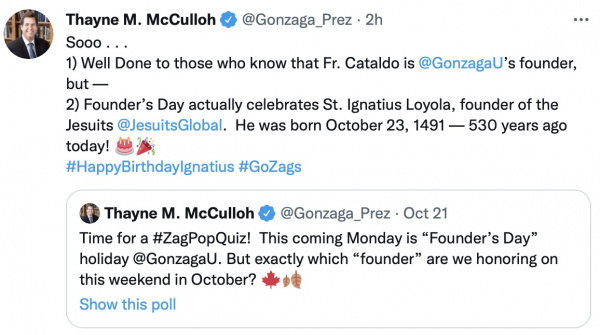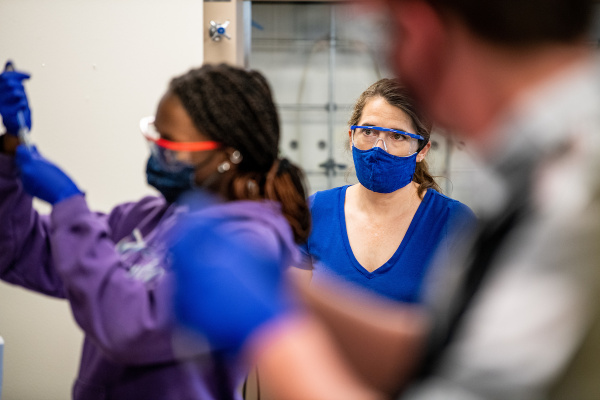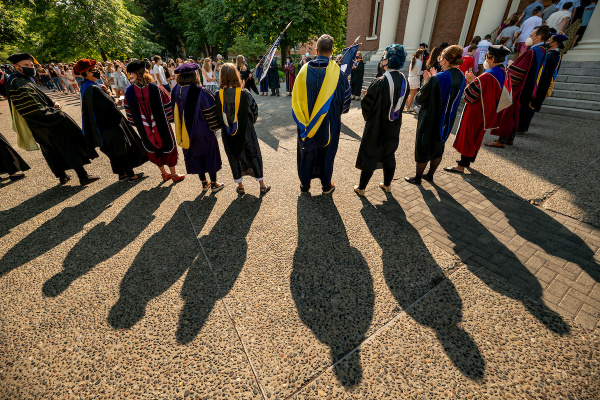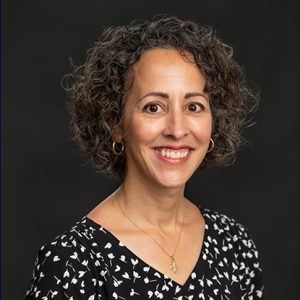I have to admit that I thought that Founder’s Day celebrated Fr. Joseph Cataldo, SJ, the Jesuit founder of Gonzaga University. But if you’re a savvier Zag than I am, you know that Founder’s Day actually celebrates the birthday of St. Ignatius of Loyola, the founder of the Jesuits.

This Founder’s Day, I find myself reflecting on our Jesuit mission and the Spiritual Exercises of St. Ignatius of Loyola, specifically, the call to freedom. In the Spiritual Exercises, we are encouraged to be open to learning about and freeing ourselves from “inordinate attachments” to pride or power, honors, or riches (money or things). Seeking freedom is a foundational feature of the spiritual life across different religious traditions. It’s an ongoing process that requires keen listening skills and thankfully, it’s a process that can be learned. Allow me to share some ways we can practice this search for freedom as we journey through another academic year.
Listening to ourselves
Academia is rife with assumptions and attitudes because it has traditionally been viewed as a meritocracy in which we earn privileges over time. If we do not also look at the evidence that there is inequitable access and distribution of opportunities to earn privileges, we may come to think we deserve certain things at the expense of others because of our status. Take for instance, an attitude that might be expressed like this: “I have earned the right to teach only what I want or to have my preferred teaching schedule every semester.” Understandably, we each have our own preferences, life experiences, and expertise, but let’s focus on that italicized phrase: “earned the right.” This attitude can convey an area of unfreedom that can limit our own growth as educators, and also adversely affect others such as students and other faculty. If you are upset or uncomfortable when someone challenges your assumptions about a practice that has benefited you in some way, it’s an invitation to listen in the Ignatian tradition to see if there is an inordinate attachment to power, honors, or riches that might undergird these feelings. (And I will add, no one is immune from attachments—not even the dean!—I sincerely see discomfort as an invitation for self-reflection and growth).
Listening to students

Our students teach us as much as we teach them (and sometimes they teach us much, much more!). It is true that students haven’t earned a terminal degree in our fields, but they are experts in knowing what makes a good teacher and mentor. They know who engages them authentically and will take them seriously, who cares about their welfare, who motivates them to do their best, who knows how to set expectations for respectful dialogue and address disrespect, bias, or overt discrimination in the classroom. Students know when instructors behave as humble experts. In other words, they are “authenticity detectors.”
It is for this reason that I value student input in faculty hiring and when assessing how things are going in our programs. Do we listen only to students? No, but I think we could do a better job of being free enough to listen non-defensively (with greater freedom!) when they have something to say about what’s happening in their classrooms. Without their expert witness, our desire to create a transformative learning experience falls short.
Listening to our community
Let’s now focus on the departments or units in which we work. We are sometimes overly committed (attached?) to seeing our units in the best positive light. It’s an act of freedom to take a closer look to see how people may have been marginalized or excluded in our units, especially when those with more power disregard their experiences or fail to act to change toxic environments. I have witnessed courageous work in the College yet we will see sustained and more widespread change if we also create healthy policies and accountability practices that build transparency and inclusion. I am excited that department chairs will begin learning ways to support their departments to create community agreements and eventually, by-laws to govern their work. If your reaction to this plan is “We’re doing just fine the way we are,” that’s great! Now is the time to codify and preserve your healthy department culture for future generations. I also ask you to consider that what seems healthy or normal to you may in fact be harmful to someone with less power or privilege. I know of colleagues who have thought about leaving Gonzaga or academia because of the departmental culture. “Seeking freedom,” asks us to reflect on the attachments that prevent us from hearing our colleagues and that lead to (often unconscious) exclusions. Community agreements and by-laws can invite colleagues into reflection and can help immensely to build a more inclusive and participatory culture by ensuring everyone has a voice in a consistent, transparent way. At a departmental level, this is what systemic change and freedom can look like.

At a Jesuit institution like Gonzaga, we are all called to seek greater freedom, not just as individuals but also as a community. This means we listen, have patience with ourselves and others, and have the courage to see ourselves in an honest light. Seeking freedom is not easy but I’m confident on this Founder’s Day that we can live in joyful hope by co-creating an environment and culture that St. Ignatius envisioned in developing the Spiritual Exercises.
More on Ignatian freedom:
Spiritual Freedom in an Emotional World

Annmarie Caño, Ph.D. is Dean of the College of Arts and Sciences and a Professor of Psychology at Gonzaga University.

Leave a Reply